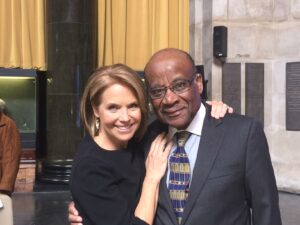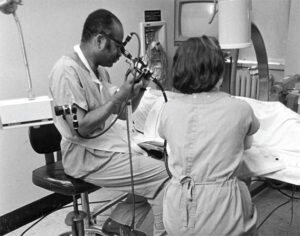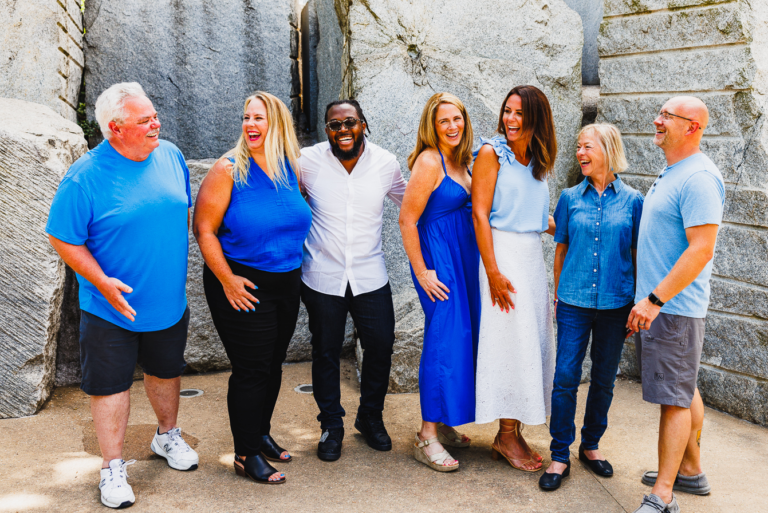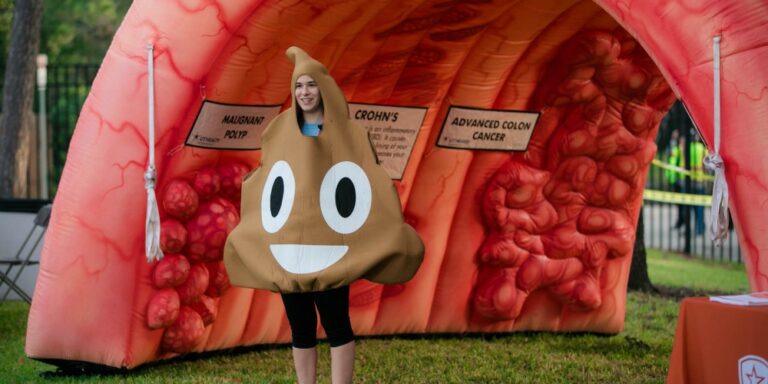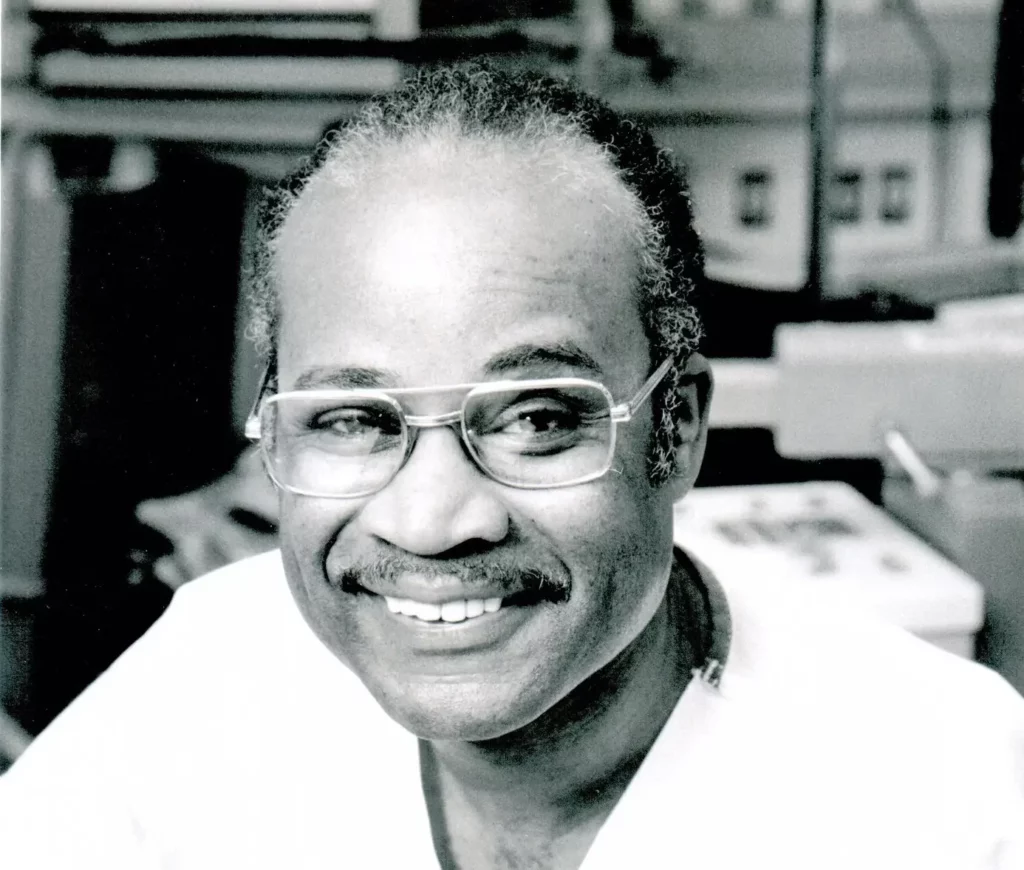
Since 1976, Black History Month has turned February into a month of reflection on the contributions and history of Black Americans. Black doctors, nurses, doulas, and healthcare professionals across the country have shaped American medical practice for centuries. From the emergence of paramedics and emergency medicine to the pioneering of colon cancer screening, Black doctors and healthcare professionals have been with us from the beginning.
When Katie Couric’s first husband, John Monahan, passed away after being diagnosed with stage IV colon cancer, she set out to raise awareness. The result was a Peabody award winning series: Confronting Colon Cancer.
Confronting Colon Cancer aired in March of 2000, and featured interviews with survivors and patients, information on the screening procedure, debunking prevalent myths around colon cancer, and perhaps most importantly, a taped recording of Couric’s own colonoscopy. Couric’s series sparked an increase in colonoscopies and brought colon cancer to the forefront of discussions on public health.
Over 6 million viewers tuned in to the series, but Couric’s series wouldn’t have been complete without the steady, confident doctor and the visionary behind colonoscopies as a cancer screening tool: Dr. Kenneth A. Forde.
Forde was born July 6, 1933, in Manhattan. His parents, Kenneth and Aileen, were immigrants from Barbados. He attended City College of New York and earned a BS while working part time as a teaching assistant in biology. In 1959, despite being encouraged not to go into medicine, Forde graduated from Columbia University College of Physicians and Surgeons, where he was the only Black student in his class.
Dr. Forde began working in the surgical field only a decade after the endoscope we use today was invented. His vision to use the endoscope as the primary tool in colorectal cancer screening. His contributions and advocacy for colonoscopies and colorectal cancer screening made him the perfect doctor for Couric’s series, Confronting Colon Cancer.
In an interview with the New York Times, Couric described Dr. Forde as “the perfect doctor for the job,” adding:
“His calm and caring demeanor, I think, helped put people at ease, and made them less trepidatious about the procedure. Not only did the number of colonoscopies increase dramatically, but I also had a number of people say they appreciated that I had selected an African American doctor. I said, “I never really thought about that.””
Dr. Forde was the only Black faculty member at Columbia’s medical school for his forty-year career. But despite this, he paved the way for diversity, and understood the importance of representation within the field of medicine. Medical students who worked with Dr. Forde recounted his gentle hand and leadership. Dr. Spencer Amory, one of Dr. Forde’s mentees, recounts that Dr. Forde cleared the path for other doctors and students, stating: “he made it possible for others like me to be welcomed. He cleared a path and subsequently strategized to recruit and retain us.”
Dr. Forde experienced racism, both by faculty as he worked to become a doctor, and by patients who would walk out of his office after discovering he was their surgeon. But according to Trisha Hargaden, who assisted Dr. Forde as an administrative coordinator, he “never became bitter,”
“He focused on the bigger picture – advocating for colon cancer screening and educating people at the grass roots level as well as people in positions of power that could make a difference.”
Dr. Forde’s tireless work to bring colon cancer screening resulted in more than 15 million colonoscopies in the United States each year. Colon cancer, when caught early is treatable, and 92% of patients diagnosed with early stage colon cancer live at least five years after diagnosis.
His legacy has impacted the lives of millions and forever changed the way we view colon cancer. He revolutionized the way we screen for colorectal cancers. This Black History Month, join us in honoring Dr. Forde’s legacy by scheduling a colonoscopy and talking to your loved ones about your family medical history.
Here are some resources to get you started:
- What is colon cancer?
- What are the risk factors?
- Minority health and colorectal cancer
- Questions to ask your doctor
References for this article:
- Melanie A. Farmer. 2022. “Dr. Kenneth A. Forde: An Early Advocate for Cancer Screenings, Champion for Diversity.” Columbia University Herbert Irving Comprehensive Cancer Center. https://www.cancer.columbia.edu/news/dr-kenneth-forde-early-advocate-cancer-screenings-champion-diversity.
- Sam Roberts. 2019. “Dr. Kenneth Forde, Surgeon Who Fostered Cancer Screening, Dies at 85.” The New York Times. https://www.nytimes.com/2019/06/12/health/dr-kenneth-a-forde-dead.html
- Penn Medicine Abramson Cancer Center. 2019 “Let’s get Screened, Part 1: Colon Cancer Screening.”
- Peabody Awards “Personal Award: Katie Couric for “Confronting Colon Cancer,” PeabodyAwards.com.
What is Colon Cancer? COLON CANCER GENETICS Questions to Ask Your Doctor

